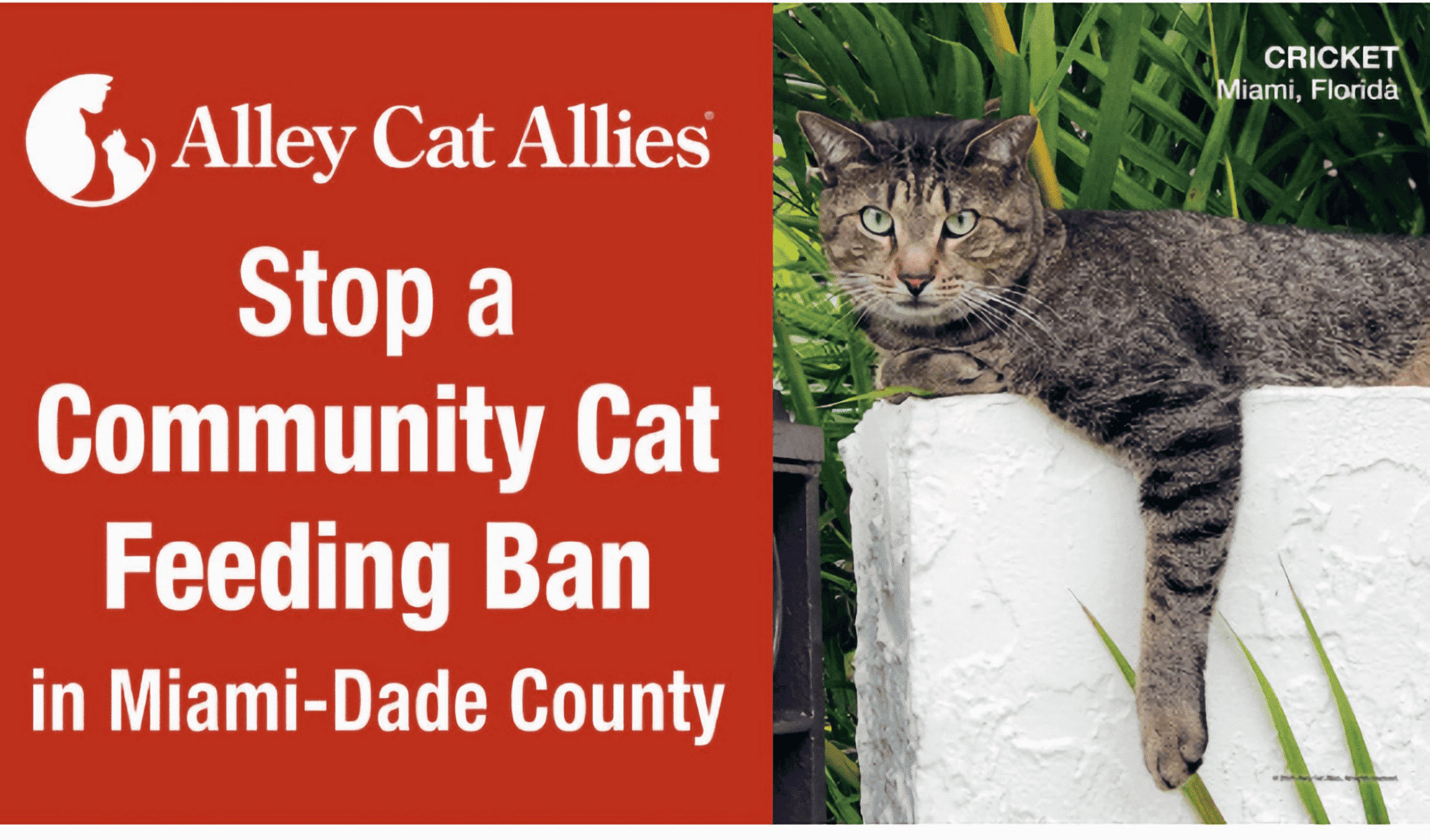Miami-Dade's Stray Cat Feeding Ban:
A Tale of Community, Compassion, and Controversy
Based on reporting from the Tampa Bay Times, May 24, 2025

The streets of Miami-Dade County have become the unlikely battleground for a heated debate about compassion, public health, and the fate of thousands of stray cats.
What started as a proposed ordinance to ban feeding stray animals quickly turned into a community uprising that forced local officials to reconsider their approach.
The Proposal That Sparked Outrage
Miami-Dade Commissioner Raquel Regalado recently proposed legislation that would have banned people from feeding stray cats, dogs, and other animals like peacocks on commercial and public property.
The proposed ordinance cited public health concerns and complaints from local businesses, including a nearby daycare that complained of cat waste
The ordinance would have made feeding community cats on all commercial and public property in the county illegal, with a penalty of $100.
For animal advocates and the countless residents who have made caring for stray cats part of their daily routine, this felt like criminalizing compassion.
The Community Fights Back
The backlash was swift and decisive.
Animal welfare organizations, local residents, and advocacy groups mobilized quickly to oppose the measure.
Alley Cat Allies organized community opposition, noting that Miami-Dade’s Board of County Commissioners was set to discuss the proposal
The opposition wasn’t just about the right to feed cats—it was about a fundamental disagreement over how to address Miami-Dade’s stray cat population.
Critics argued that banning feeding would lead to more suffering and death among the county’s estimated thousands of stray and feral cats, without addressing the root cause of overpopulation.
Current Reality: A County of Contrasts
Miami-Dade County has a law prohibiting stray dogs, but there is no law prohibiting stray cats.
This legal distinction reflects the complex nature of cat management—unlike dogs, cats roam freely and often live in colonies cared for by multiple community members.
The county does offer solutions for those wanting to help.
Miami-Dade provides a free Trap-Neuter-Vaccinate-Return Program, which officials describe as “an effective and humane way to stabilize the homeless cat population”
This TNR approach allows cats to live out their lives while preventing future generations through spaying and neutering.
Victory for Advocates
Commissioner Regalado ultimately revoked the legislation after receiving significant backlash.
The quick reversal demonstrated the power of community advocacy and highlighted the deep emotional connection many Miami-Dade residents have with the county’s stray cat population.
This outcome doesn’t solve the underlying challenges of managing stray cat populations, but it preserves the status quo that allows community members to continue caring for these animals while working toward longer-term solutions through TNR programs and adoption efforts.
Looking Forward
The controversy has brought renewed attention to Miami-Dade’s approach to animal welfare and the ongoing need for comprehensive strategies that address both animal welfare and legitimate public health concerns.
While feeding bans are off the table for now, the community conversation about responsible cat management continues.
For those wanting to help, the county’s TNR program remains available, and local animal welfare organizations continue their work to find permanent solutions for Miami-Dade’s four-legged residents.
